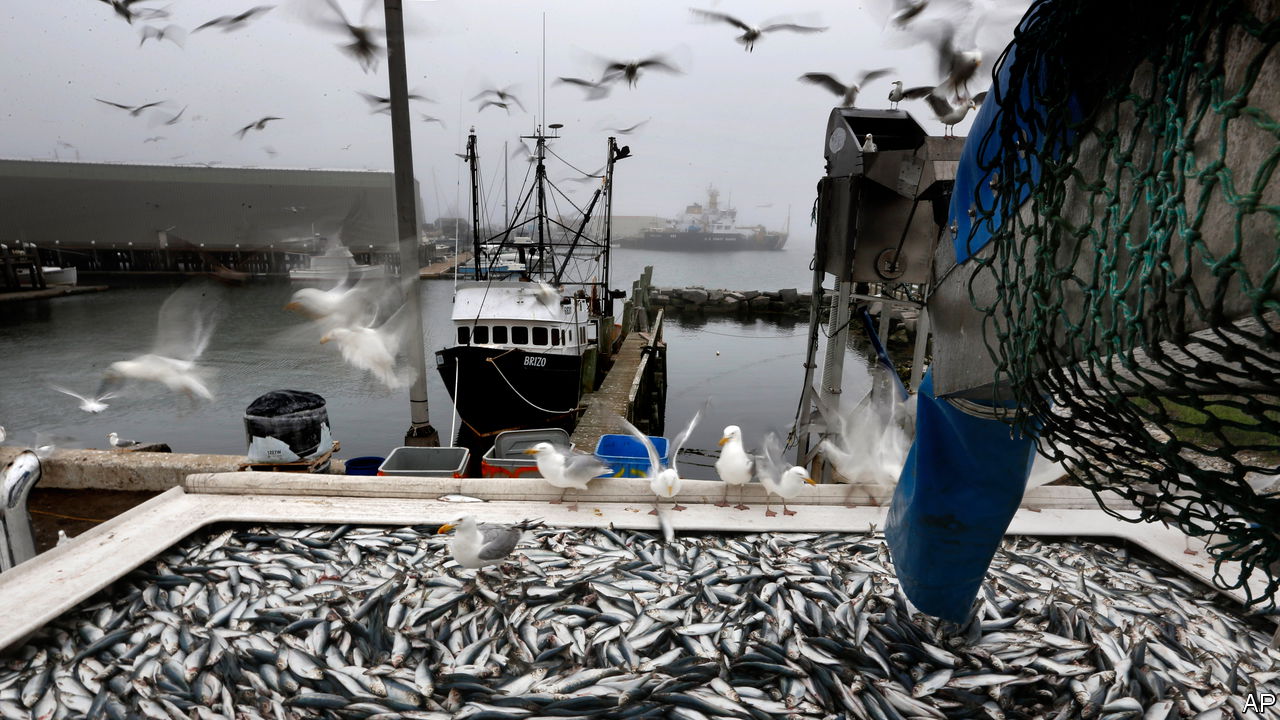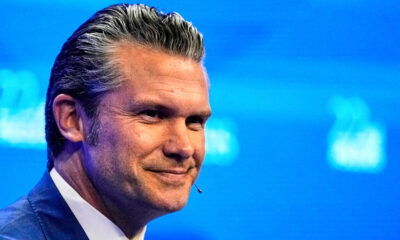A PAIR OF spirited Supreme Court hearings on January 17th confronted a question at the heart of American democracy: what is the balance of power among the three branches of the federal government? The justices seemed inclined to shift that balance towards their own chambers.
The cases under review both involve fishermen objecting to a regulation requiring them to pay hefty fees for monitors who keep an eye on them as they troll for herring. The rule was issued in 2020 by the National Marine Fisheries Service, an agency of the executive branch. It was then blessed by two circuit courts of appeal as consonant with the Magnuson-Stevens Fishery Conservation and Management Act, a law passed by Congress in 1976.
Yet in siding with the agency, those courts relied on a 40-year-old Supreme Court precedent, Chevron USA v Natural Resources Defence Council, that some current justices have soured on. According to Chevron, when a law of Congress is ambiguous, agencies have free rein to regulate in line with their understanding of the statute, as long as their interpretations are reasonable. This has come to be known as “Chevron deference”. With this week’s cases, Loper Bright Enterprises v Raimondo and Relentless v Department of Commerce, the apex of America’s judiciary looks ready to rescind this elbow-room for its co-equal branch. It seems judges may soon have more control over regulators handling everything from aviation to consumer safety.
Chevron’s most vocal critic on the court, Justice Neil Gorsuch, stayed true to his cause in the three and a half hours of arguments. Judges “abdicate” their “responsibility” as the final interpreters of the law, he said, when they allow agencies to run amok by making onerous rules like the one for herring fishermen. He suggested that another case, Skidmore v Swift (decided 40 years before Chevron), strikes a more suitable compromise. “Skidmore deference”, Justice Gorsuch said, involves “listen[ing] carefully to both sides and provid[ing] special weight” to what the agencies have to say in favour of their view, but never outsourcing legal questions to bureaucrats.
Justice Brett Kavanaugh spoke sceptically of Chevron, too, but said “deference” mischaracterises Skidmore. The 1944 case is about “respect” for regulators, he said, rather than giving them a long leash. For Justice Elena Kagan, one of only three jurists who resisted Chevron’s demise, Skidmore says “nothing”. The purported Chevron alternative, she quipped, amounts to: “if we think you’re right, we’ll tell you you’re right.”
Justice Kagan posed a number of hypothetical questions to Roman Martinez, one of the fisheries’ lawyers, involving the relative expertise of judges and agencies. Should judges decide whether a new product to promote healthy cholesterol is a “dietary supplement” or a “drug” subject to more stringent regulation? “I would rather have people at HHS [the Department of Health and Human Services] telling me,” she offered. If Congress were to legislate on artificial intelligence, she mused, should America entrust courts or experts to resolve ambiguities?
Justice Ketanji Brown Jackson chimed in with big-picture questions during the Relentless hearing. (She was recused from Loper Bright due to her participation in the case as a circuit-court judge.) Chevron opponents may think judges can keep their own preferences at bay, but “it’s actually not as easy as it seems” to pry apart law and policy, she said. Empowering judges to encroach on the business of agencies, she warned, might turn courts into “über-legislators”.
Elizabeth Prelogar, the solicitor-general, argued doggedly in favour of agency leeway through both hearings. In a nod to Chief Justice John Roberts, she warned that ditching Chevron would cause a “shock to the legal system”—reminiscent of the words he used in 2022 in lamenting his five conservative colleagues’ decision to overrule Roe v Wade, the ruling that in 1973 declared abortion a constitutional right. And in her final few minutes, with prompting from Justice Kagan and in light of an apparent lack of a majority on her side, she proposed a few ways the conservative court might tighten judicial oversight without tossing Chevron overboard. It would be a surprise if the conservative justices take the bait. ■
Stay on top of American politics with Checks and Balance, our weekly subscriber-only newsletter, which examines the state of American democracy and the issues that matter to voters.

 Blog Post6 days ago
Blog Post6 days ago
 Accounting1 week ago
Accounting1 week ago
 Economics1 week ago
Economics1 week ago
 Personal Finance1 week ago
Personal Finance1 week ago
 Economics1 week ago
Economics1 week ago
 Personal Finance1 week ago
Personal Finance1 week ago
 Accounting1 week ago
Accounting1 week ago
 Finance1 week ago
Finance1 week ago



















